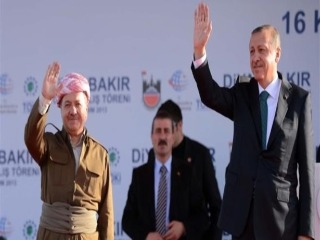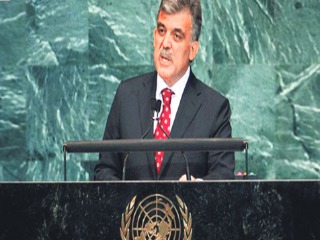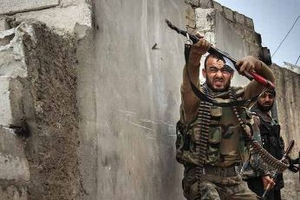Turkey and Syria: a Parting of Ways
By Richard Weitz (vol. 4, no. 15 of the Turkey Analyst)
The turmoil in Syria threatens to deprive Turkey’s ruling Justice and Development Party (AKP) of one of its most significant foreign policy achievements. Since coming to power in 2002, the AKP has achieved a remarkable improvement in relations with Syria as part of its general goal of “zero problems with neighbors” that underpins its foreign policy. Now the upheaval in Syria is straining ties not only between Ankara and Damascus but also between Turkey and Iran. In addition, Turkey could suffer massive economic loses, increased threats to its border and internal security, and a more complicated regional Kurdish problem.
Turkey Faces Difficult Challenges in a Volatile Foreign Policy Environment
By Richard Weitz (vol. 4, no. 14 of the Turkey Analyst)
Foreign and defense policies did not figure prominently in the recent general election in Turkey. Most Turks seem satisfied with the more assertive role that their government has assumed in recent years, while Turkey’s weak opposition parties have yet to offer a coherent foreign policy alternative to the ruling Justice and Development Party (AKP). Still, Turkish leaders will not be able to escape foreign and defense issues given Turkey’s dependence on its foreign economic ties and its location as a “front-line” state bordering the Middle East, Central Asia, and the Balkans. The situation in Syria is the most sensitive one for Turkey, and it could notably disrupt Turkey’s otherwise harmonious relations with Iran. Another crucial question is how much pull NATO will exercise over Ankara’s foreign and defense policies.
The New Oil Game in Mesopotamia
By Kemal Kaya (vo. 6, no. 21 of the Turkey Analyst)
Petro-politics fuels the evolving relationship between Ankara, Erbil and Baghdad. At the heart of the new oil game in Mesopotamia is the question of how the oil from the territory of the Kurdistan Regional Government (KRG) is going to be transported to the world markets. Turkey’s strategic position – and its economy – is set to be strengthened as it taps into the oil riches of Iraqi Kurdistan and as it realizes its ambition to be a major regional oil hub.

Is Turkey going to reconsider its Sunni sectarian policy in Syria?
By Halil M. Karaveli (vol. 6, no. 17 of the Turkey Analyst)
Turkey may not yet be ready to reexamine its Syria policy and to acknowledge that it bears a share of the responsibility for the present state of affairs in Syria. The official Turkish narrative is that things in Syria would have been much different if only the “moderates”, “the ones who are working for democracy” that Turkey has supported had been assisted by the United States. What Turkey needs to do in response to the growing security threat that Syria represents is to make sure that the impression that Turkey is committed to promoting a sectarian, Arab Sunni cause in Syria is dispelled. President Gül’s statement that Turkey is making a “significant effort” to remove the jihadist threat on its border is a hopeful sign.

The Arab-Kurdish Battle in Syria: Implications for Turkey's Standing
by Veysel Ayhan (vol. 6, no. 4 of the Turkey Analyst)
The battle over the Syrian town Ras al-Ain on the border to Turkey and the recent cease-fire agreement between the Syrian opposition and the Kurdish Democratic Union party (PYD) have major implications for Turkey, affecting its relations with the Kurds in Syria, and with parts of the opposition. The battle over Ras al-Ain has not only resulted in the Kurds seeing Turkey as their enemy, but has also led some Syrian opposition leaders to question the role that Turkey plays in their country. The standing of Turkey has been negatively affected as the notion that Turkey could be of assistance in ending the intensified ethnic, religious or sectarian strife that can be expected after the downfall of al-Assad has been dealt a blow at Ras al-Ain.




